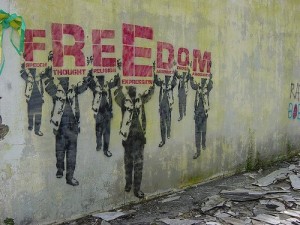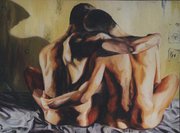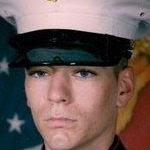Compiled by Richard Ammon
GlobalGayz.com
February 2012
Introduction
The news from Eritrea is not good in general and worse for LGBT citizens. Homosexual acts are illegal in Eritrea. Same-sex sexual activity is prohibited in Section II of the penal code from 1960. Article 600 “unnatural carnal offences” can be punished for internment for between 10 days and 3 years. The U.S. Department of State‘s 2010 Human Rights Report found that, in 2010,
LGBT individuals continue to be prosecuted under article 600 of the penal code. During the year there were unconfirmed reports that the government carried out periodic roundups of individuals considered gay and lesbian, and gays and lesbian faced severe societal discrimination. The government accused foreign governments of promoting the practice to undermine the government. There were uncorroborated reports that known gays and lesbians in the armed forces were subjected to severe abuse. There were no known lesbian, gay, bisexual, or transgender organizations in the country. There appeared to be no societal violence or discrimination based on persons with HIV/AIDS.
 Description of the Bad News
Description of the Bad News
The State Department Human Rights Report continues with the following grim comments:
April 8, 2011 – Eritrea is a one-party state that became independent in 1993 after its citizens voted for independence from Ethiopia, following 30 years of civil war. The People’s Front for Democracy and Justice (PFDJ), previously known as the Eritrean People’s Liberation Front, is the sole political party and has controlled the country since 1991. (photo right: Freedom Wall: speech, thought, religion, expression, assembly, choice, association. Location unknown)
The country’s president, Isaias Afwerki, who heads the PFDJ and the armed forces, has dominated the country. The government continues to postpone general elections which have not taken place since independence in 1993. The government continues to use border disputes with Ethiopia and Djibouti as a pretext for curbing human right and civil liberties. Although civilian authorities generally maintained effective control of the security forces, consistent and systemic gross human rights violations persisted unabated at the government’s behest.
Human rights abuses included abridgement of citizens’ right to change their government through a democratic process; unlawful killings by security forces; torture and beating of prisoners, sometimes resulting in death; abuse and torture of national service evaders; harsh and life-threatening prison conditions; arbitrary arrest and detention, including of national service evaders and their family members; executive interference in the judiciary and the use of a special court system to limit due process; and infringement of privacy rights. National service obligations are effectively open-ended although the government does not acknowledge this circumstance.
There is no due process and persons remain in jail for years. The government severely restricts freedoms of speech, press, assembly, association, and religion. The government also limits freedom of movement and travel for all citizens, foreign residents, the UN, humanitarian and development agencies; it has harassed and tightly controlled the movements of foreign diplomats. Foreign diplomats are required to apply for travel permits in writing 10 days in advance, even for consular emergencies, and travel permit applications were often not answered or refused. Restrictions continued on the activities of national and international nongovernmental organizations (INGOs).
Female genital mutilation (FGM), although prevalent in rural areas, declined significantly in urban areas, according to trusted sources.
Societal abuse and discrimination against women, members of the Kunama ethnic group, gays and lesbians, members of certain religious groups, persons with disabilities, and persons with HIV/AIDS remain issues of concern. There are limitations on worker rights, and the government was party to forced labor on its citizenry. Children are known to be engaged in forced labor.
No domestic human rights groups and only six international humanitarian NGOs (Oxfam, Lutheran World Federation, Irish Self-Help, Gruppo Missione Asmara of Italy, Refugee Trust International, and Norwegian Church Aid) operate in the country; the government interfered with and restricted their work causing some to close down their work.
It should be noted that United States personnel were rarely permitted to travel outside of the capital Asmara, and had very limited access to citizens and government officials in the country. This report draws in large part on non-U.S. government sources.

Some Personal Comments From Gay Eritreans
…”I am gay Eritrean who struggled my way in Asmara. I had my friend and all our movements was secret below tunnels only. You will be in prison for years for being gay, but that is if only someone saw you go to the prison or otherwise you will be killed unnoticed by the government. You will disappear unknown out of this world. …”
“The society here doesn’t know or even comprehend what is “gay” or “homosexual”. There are not even words to call it. Most, if they know what it is call it by using words from Ethiopian Amharic “finfanit” or Arabic “looti”. If you see men holding hands in Eritrea, or hugging each other, to westerners it would seem “gay” but to the people it wouldn’t be seen as wrong. Now you might say “well how about if two men or women kiss”…the thing about public displays of affection ie kissing or anything that is sexual is that it is frowned upon because it is considered a private matter.”
From: http://www.topix.com/forum/world/ethiopia/TS85RIRI3FGTFUA1O
A blog site for gay Eritreans: http://queeritrea.blogspot.com
This has changed to: http://myintersection.tumblr.com/
Facebook page: Eritreans Gay in the World
Blog page: Ethiotube.net
African Resource Index: Eritrea
















